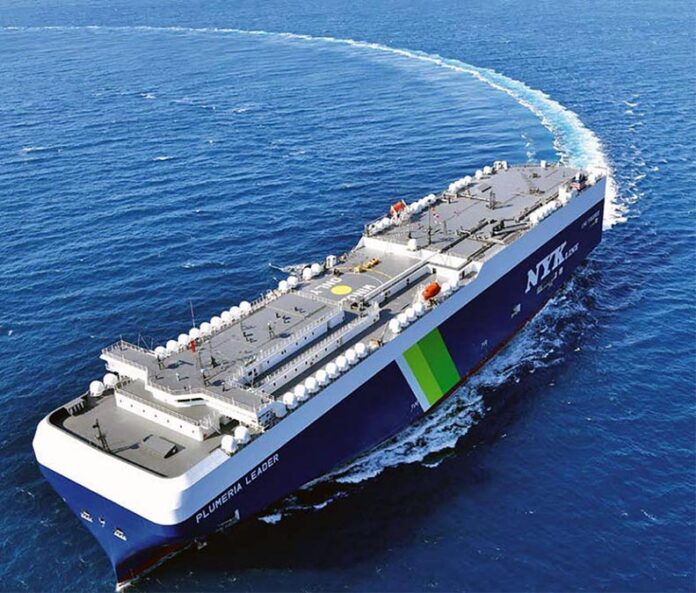-
NYK has earned its accolade as an “A-list” company for climate change for the third straight year from CDP, an international environmental non-profit organization
-
NYK is one of only two shipping groups out of 10,000 companies assessed for this year’s honors
-
The ocean liner was recognized for being a global leader in reducing greenhouse gas emissions and for its initiative to mitigate the risk of climate change
Nippon Yusen Kabushiki Kaisha (NYK) has been recognized as “A-list” company for climate change in 2022 by CDP, an international environmental non-profit watchdog. It was the third year in a row that Japan’s second-largest container line has strung the honor.
CDP announced in a press statement on December 13 that NYK was one of just two shipping operators out of 283 companies that were selected for the A-list, out of some 10,000 firms worldwide that were assessed for their efforts to reduce greenhouse gas emissions.
Out of the successful aspirants, 74 are Japanese companies and 2 are shipping companies, including NYK. CDP did not name the other shipping company honored.
NYK said its inclusion on the A-list was in recognition of its achievements in trying to mitigate climate change.
“[The A-list] is a comprehensive recognition of our achievements as a global leader in reducing greenhouse gas (GHG) emissions and for the following series of initiatives to mitigate the risks of climate change,” NYK said in a press release. These initiatives are:
- The company’s efforts to achieve a long-term target of net-zero emissions of GHG by 2050 for the NYK Group’s ocean-going businesses
- Challenges by Yusen Logistics Co. Ltd., which is in charge of NYK Group’s logistics business, to reduce GHG emissions after setting a long-term GHG reduction target of “achieving net zero emissions for all services provided to customers by 2050”
- The “NYK Group ESG Story 2022” provides a medim- to long-term roadmap for achieving NYK’s long-term GHG reduction targets in its ocean shipping business
- Adequate disclosure of information on the four foundational areas of governance, risk management, strategy, and indicators and targets in addressing climate change, in accordance with TCFD recommendations
- The effective functioning of an EMS (Environmental Management System) based on a clear commitment by top management to climate change measures
- Appropriate recognition and assessment of risks and opportunities for environmental issues
- Highly transparent disclosure of GHG emissions and reductions
- Active involvement in various types of green finance, such as green bonds, green loans, and sustainability-linked loans
- Proactive efforts to reduce GHG emissions by introducing and using LNG fuels, active use of biofuels and methanol fuels, and various fuel-saving activities
- Active engagement in research and demonstration projects for liquefied CO2 marine transportation and the practical use of zero-emission fuels such as hydrogen and ammonia
- Proactive efforts to collaborate with diverse stakeholders and advocates for policy through various initiatives and industry associations
CDP’s annual environmental disclosure and scoring process is recognized as the gold standard of corporate environmental transparency. The global non-profit group runs the world’s environmental disclosure system for companies, cities, states and regions.
The CDP score is widely used around the world as a leading indicator in making sustainable investment and procurement decisions. Responding companies are allocated a score from A to D, depending on the comprehensiveness of their disclosure. Those that don’t disclose or provided insufficient information are marked with an F.
NYK Group says it continues to strive to disclose relevant information as a global leader in addressing climate change, and to create new value as a sustainable solution provider needed by society and industry.
NYK Line is Japan’s second-largest shipping company based on TEU capacity. The company was responsible for opening Japan’s first passenger liner service in 1875 between Yokohama and Shanghai and was operating routes to London by 1899.
Today, in terms of bulk shipping, the group offers car transport, dry bulk transport, and liquid transport (crude oil, clean petroleum, offshore energy and LNG).
RELATED READ: IMO members agree to cut by 50% greenhouse gas emissions from ships by 2050





